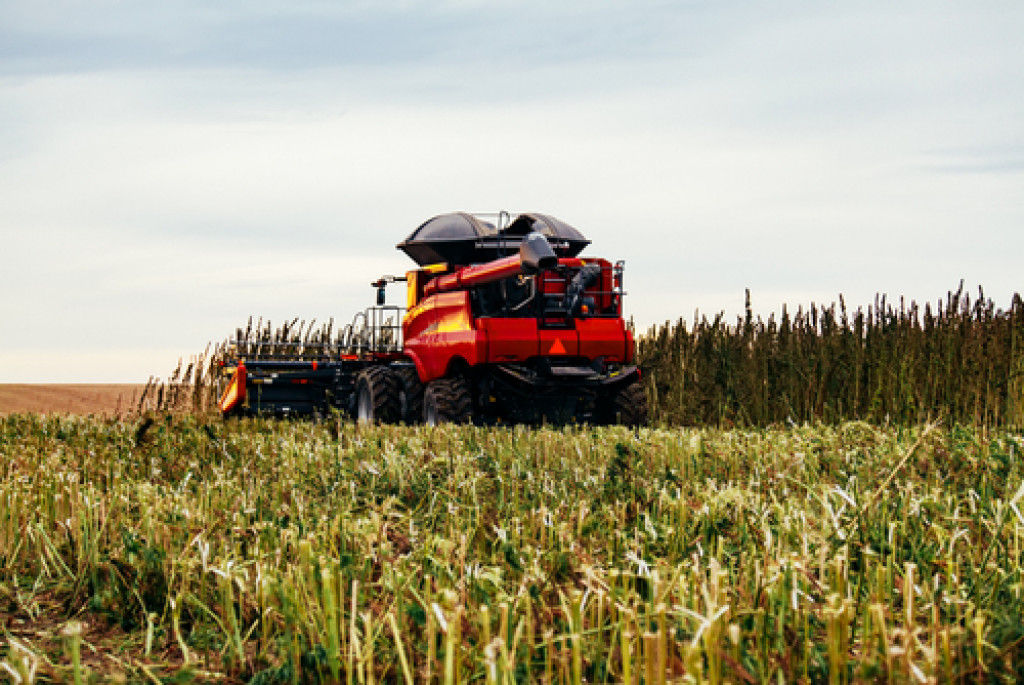- Advanced technology, such as drones and GPS-guided tractors, can significantly optimize farming operations and efficiency.
- Empowered employees, data-driven decisions, and efficient resource allocation are crucial for maximizing profits.
- Implementing sustainable farming practices like crop rotation and water conservation can minimize environmental impact.
- Investment in quality infrastructure, such as commercial pole barns, promotes efficiency and safeguards farming equipment.
As a businessman, optimizing your farming operations to increase productivity and profitability is important. As an agribusiness professional, you understand the importance of having an efficient farming operation that produces high-quality crops and reduces costs.
However, optimizing your farming operations can be daunting, especially if you do not have the knowledge and experience in agriculture. This blog will discuss essential tips for agribusiness owners on optimizing their farming operations and increasing their overall profitability.
Use Technology
Agriculture has come a long way in the last few decades, and technology has played a crucial role in the industry’s evolution. Using technology, agribusinesses can optimize their farming operations and increase their efficiency.
Some examples of technology that can be used include drones for crop analysis, GPS-guided tractors for precision planting, and moisture sensors for irrigation management. You can also use software tools to monitor and analyze data related to your farming operations.
Empower Your Employees
Your employees are one of the most critical assets in your agribusiness, and empowering them is crucial for optimizing your farming operations. Provide your employees with the necessary training and support, and give them the autonomy to make decisions that will benefit your farming operations.
Empowered employees have a sense of ownership and are more committed to achieving the goals of their agribusiness. You should also encourage them to develop innovative solutions for optimizing your farming operations.
Data-Driven Decision Making

Utilize data analytics to analyze your farming operations and make informed decisions. Collect data on crop yields, weather patterns, soil moisture, and other relevant factors to optimize your farming operations.
By analyzing the data, you can make informed decisions on which crops to plant, when to plant them, and how to manage them. You can then use the insights to develop strategies that will maximize productivity and profitability.
Efficient Resource Allocation
Efficient resource allocation is crucial for optimizing your agribusiness operations. Ensure that you are allocating your resources – labor, equipment, inputs – efficiently, and prioritize tasks based on their importance. By doing so, you can reduce costs and maximize profits. You may also want to consider using input-sharing services that allow you to share resources with other agribusinesses.
Sustainable Farming
Sustainable farming practices are becoming increasingly important in the agricultural industry. By implementing sustainable farming practices, agribusinesses can optimize their farming operations while minimizing their impact on the environment. Some examples of sustainable farming practices include the following four:
Crop rotation
Crop rotation is the process of alternating crops in a given area in order to increase soil fertility and reduce pest damage. By rotating crops, agribusinesses can optimize their farming operations while reducing their environmental impact.
Conservation tillage
Conservation tillage is a form of sustainable farming that reduces erosion and soil compaction by reducing the number of times the land needs to be plowed. This practice helps conserve soil moisture and nutrients, making it easier for crops to thrive.
Integrated pest management
Integrated pest management is the practice of using natural predators or other methods to reduce pest damage in a given area without the use of harmful chemicals. By implementing this practice, agribusinesses can optimize their farming operations while minimizing the risk of environmental damage.
Water conservation
Water conservation is essential for optimizing your farming operations while protecting the environment. Implementing water-saving practices such as drip irrigation, rainwater harvesting, and mulching can help reduce water consumption and ensure that your crops get the moisture they need.
With these sustainable farming practices, agribusinesses can optimize their operations while minimizing their environmental impact.
Quality Facilities

In today’s agribusiness, it is essential to have high-quality facilities in order to optimize your farming operations. Investing in quality infrastructure, such as a commercial pole barn, can provide the necessary storage for inputs and outputs and ensure that your farming equipment is kept safe and secure. Quality buildings also create an efficient workspace for your employees and help them work in an organized and efficient manner.
Optimizing farming operations is a multidimensional process involving advanced technology, employee empowerment, data-driven decision-making, efficient resource allocation, sustainable farming practices, and investment in high-quality facilities.
By implementing these strategies, agribusinesses can enhance productivity, reduce costs, and ultimately increase profitability while minimizing their environmental impact. As you navigate through the ever-evolving landscape of the agricultural industry, these practices will play a pivotal role in shaping sustainable and thriving agribusinesses for the future.




